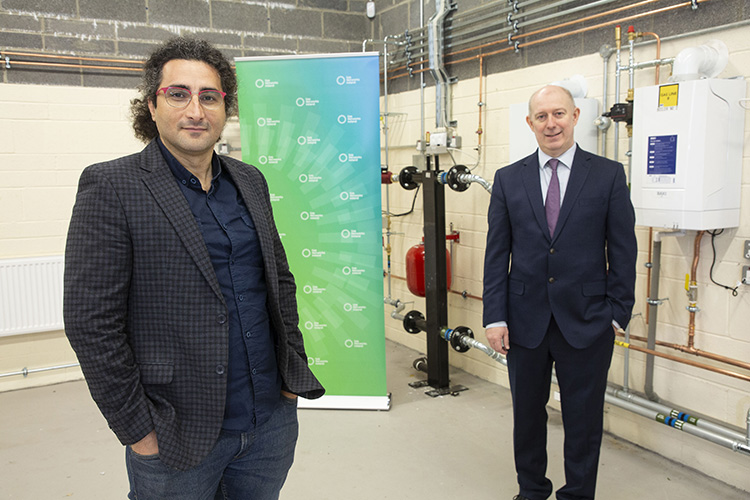Whether we will be able to warm our homes and cook our dinners with hydrogen in the future is a question that researchers from University College Dublin’s Energy Institute (UCDEI) are hoping to answer as part of a new research project to investigate the potential use of hydrogen in Irish homes.
Led by Gas Networks Ireland’s Head of Technical Development and Technical Training, Liam Nolan, together with Dr Ali Ekhtiari and Dr Eoin Syron from UCDEI; the research team is testing the operation and performance of household appliances with varying levels of hydrogen and natural gas blends.
Gas network decarbonisation
Using the testing facilities at both UCDEI’s Integrated Energy Lab and Gas Networks Ireland’s new hydrogen innovation facility in west Dublin, which enables the safe testing of pipelines, meters and appliances off-network; the team is working to understand the full potential of hydrogen and ensure Ireland’s gas pipelines are capable of safely transporting and storing this vital carbon-free gas.
Dr Syron says that the decarbonisation of Ireland’s gas network is essential if we are to transition to a net-zero energy system in Ireland by 2050. “This project will provide the data needed to understand how adding hydrogen to the gas network will impact the devices and appliances we use in our homes today to ensure a smooth transition with minimal cost and disruption to consumers.”
European Green Deal
Embraced in the UK and across Europe, hydrogen is a critical component of the European Green Deal and recognised by the European Commission as offering “a solution to decarbonise industrial processes and economic sectors where reducing carbon emissions is both urgent and hard to achieve”.
According to Gas Networks, by gradually replacing natural gas with renewable, carbon-neutral and ultimately zero-carbon gases, such as biomethane and hydrogen, Ireland can benefit from a net-zero carbon gas network and reduce emissions across a number of key sectors, including those that are traditionally difficult to decarbonise, such as transport, agriculture, industry, heating and reliable power generation.
Liam Nolan explains that Ireland has already transitioned to a cleaner gas once before, from the old town gas, which was a combination of hydrogen, carbon monoxide and methane, to natural gas in the 1980s. “We have a head start on this next chapter thanks to having one of the safest, most modern gas networks in the world,” Nolan said. “Like many gas-network operators around Europe, we are investigating how much hydrogen can be blended with natural gas and transported through our existing national gas pipelines. Initial indications look very promising, particularly at lower percentage blends. Our research with UCDEI will allow us to test the operation and performance of household appliances in a very safe and controlled environment.”


